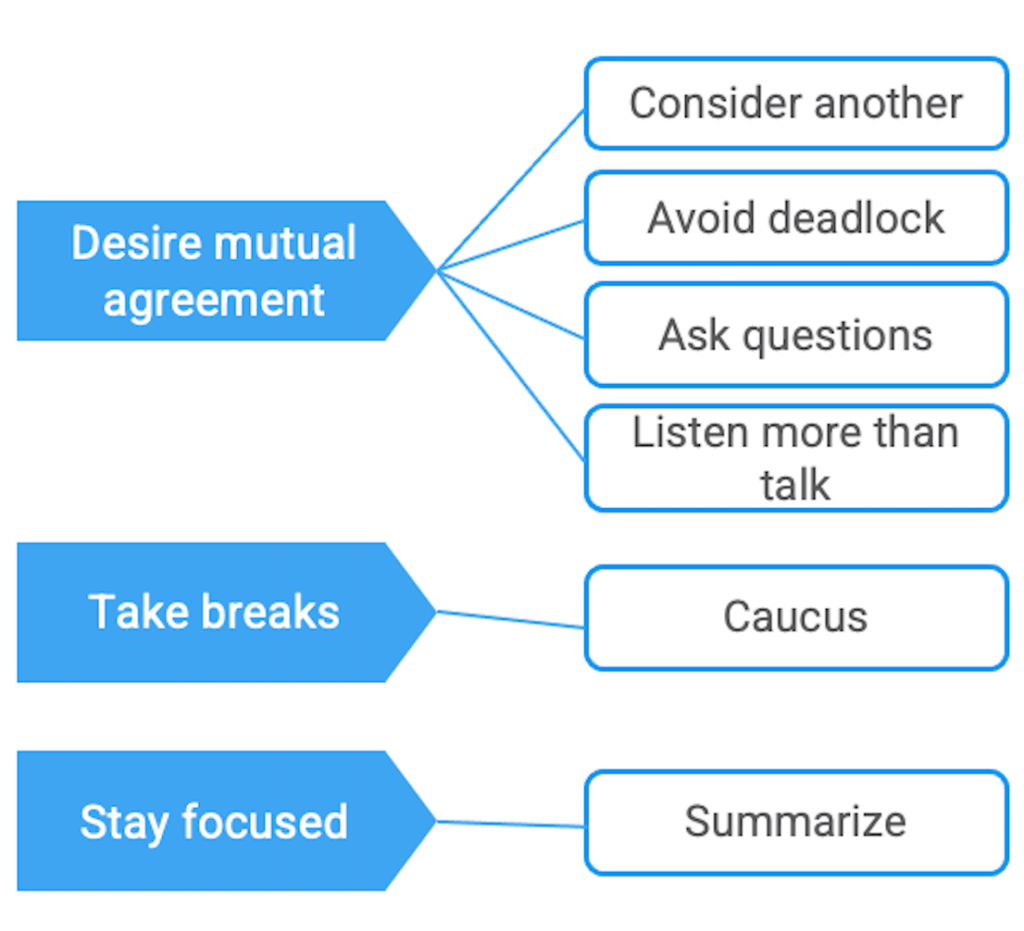Successful negotiators often perform well by using these tactics.
Desire to Achieve a Mutual Agreement
Mutual agreement is crucial for success. It is important that both parties are willing to develop an agreement that benefits both sides, rather than being one-sided. The negotiator’s temperament and circumstances may affect the outcome of the negotiation, as previously mentioned. Both parties should take into account and respect each other’s perspectives, even if there are points that need to be negotiated.
1. A deadlock occurs when an agreement is not made. Early in the process, the parties involved decide what will be the next step if a decision is not made. Potential alternatives include taking a brief caucus before resuming negotiations. Both the buying and selling organization should have drafted a BATNA (best alternative to negotiated agreement) before the negotiations started. Knowing the alternative before it is needed may reduce emotions and encourage listening to the other viewpoint.
2. Although both parties conducted analysis before the negotiations started, asking questions will demonstrate interest and reduce the potential to make assumptions that are not true.
3. Listen then speak. Listening may help reduce anxiety and increase understanding. Listening to another person may solve a problem or help discover a solution that was not considered earlier.
Take Breaks
Earlier, we discussed the importance of taking breaks. These breaks are necessary not only for physical reasons, such as standing up and stretching after sitting for a long time, but also for mental reasons. They provide an opportunity to reflect on progress, both positive and areas that need improvement. Additionally, it may be necessary for a team to have a brief caucus to discuss an issue privately and without involving the other party.
Stay Focused
To reach an agreement, it is important to review a pre-planned agenda and mutually decide on the order of topics to discuss. Taking breaks during negotiations can also help keep individuals or teams focused. It’s helpful to have a plan in place for unexpected topics or deadlocks that may arise. If negotiating as a team, ensure that everyone is aware of their role and responsibilities at the negotiating table.
Find Creative, Mutual Agreement
The exhibit began with a shared understanding, and it is now ending on the same note. The aim is to be innovative and adaptable. By asking three crucial questions, we can explore possible solutions that may not have been thought of before.

